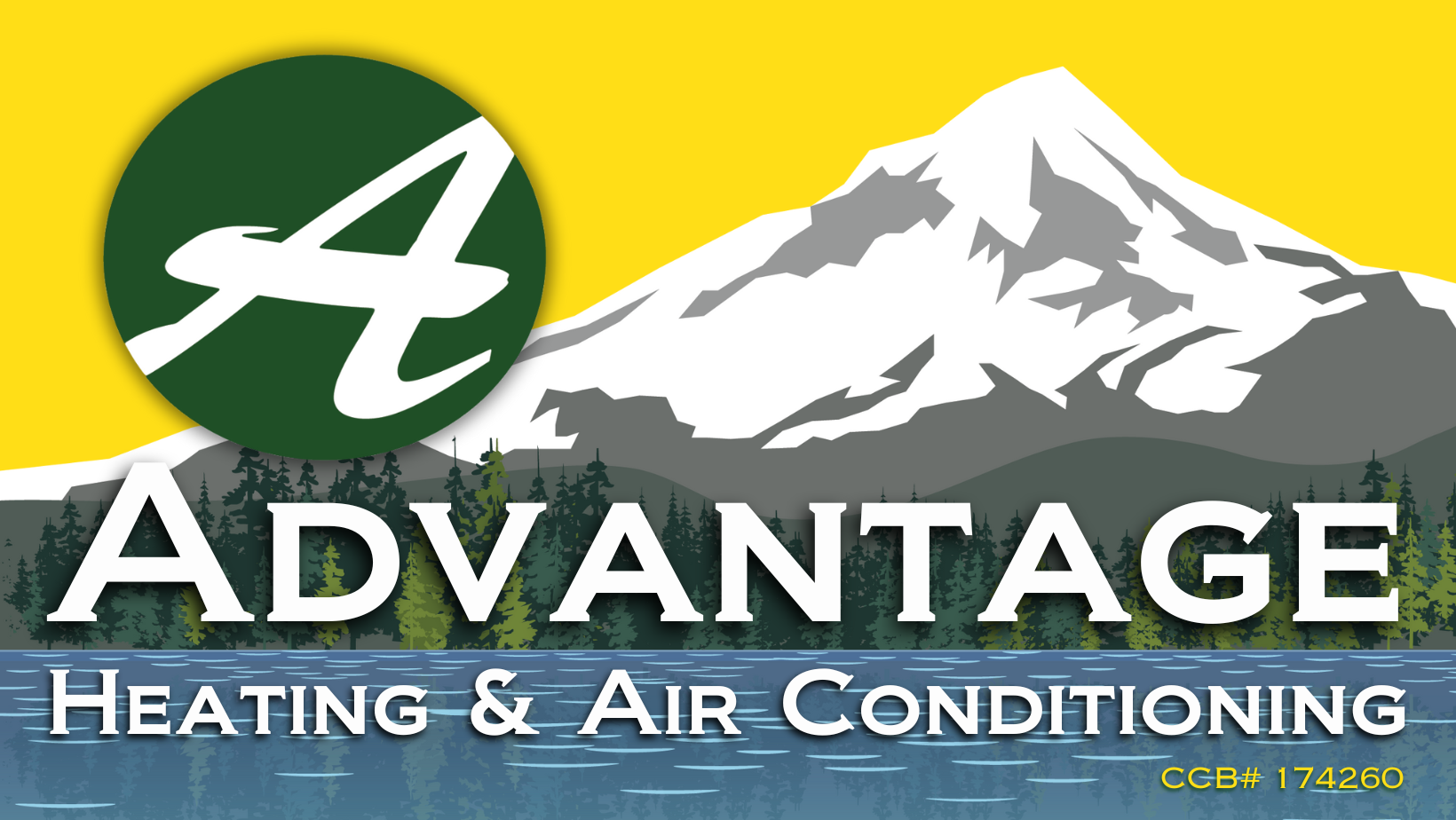10 Best Ways to Get an Energy Efficient HVAC System
Modern homes are all built to be as energy efficient as possible. This helps you save money on energy and reduce your carbon footprint. A well-designed home is also easier to keep a comfortable temperature. Your HVAC system shouldn’t be any different. In this post, we’ll list the 10 best ways to get an energy efficient HVAC system.
These tips will include ways to optimize existing systems, what to look for when shopping for new systems, as well as best practices to get better performance out of your HVAC system while spending no money.
Why It's Important to Have an Energy Efficient HVAC System
There are three big reasons that you want to have an HVAC system that is as efficient as possible.
These reasons are:
- Save Money on Energy
- Longer Lifespan
- Better Home Comfort
Obviously, efficient HVAC equipment will use less energy. What isn’t as obvious is that efficient equipment may last longer and require fewer repairs. If your equipment is not optimized to heat or cool your home, it may struggle in other ways.
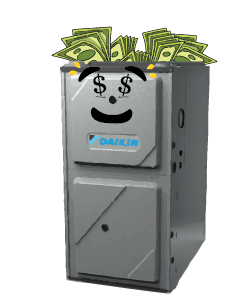
It may run for cycles that are too long or short. This will wear down the equipment and reduce its lifespan.
If your HVAC system is losing hot or cold air because of inefficiency, then that air is not getting into your home. This can leave your home uncomfortable. It’s also possible that your equipment is too big for your home and might send too much airflow into your home. That makes the temperature throughout your home uneven.
1. Get Familiar with Energy Ratings
Whether you are working with existing equipment or looking to purchase new equipment, the first thing that you will need to do is get familiar with energy ratings.
There are three primary methods of rating a piece of HVAC equipment:
- AFUE: Furnace Heating
- SEER: AC and Heat Pump Cooling
- HSPF: Heat Pump Cooling
We have articles that go into more depth with each metric.
Each one of these stats rates a specific piece of HVAC equipment at how efficient it is for heating or cooling. In all cases, the higher the number, the more efficient the piece of equipment is.
2. Get an Energy Audit
This is something you can do to optimize the energy usage of your entire home. Contact your local electric company and ask if this is a service they can perform. They will look at how your home is built, what appliances and equipment you own, and how you use electricity.
At the end of the audit, the auditor will provide an exact picture of how much energy your use versus what you should need to use under optimal conditions. They should also provide you with notes on what you can do to improve your energy usage.
Manual J or Block Load
One calculation that gets performed during an energy audit is a Manual J or Block Load calculation. This is a method of calculating the size of HVAC equipment that you need. Having equipment that has the right output is vital for achieving energy efficiency.
There are also ways you can test this for yourself. If you think your HVAC equipment is too big or too small, contact your local HVAC professionals and ask about getting the right size.
3. Make Sure Your Equipment is the Right Size
Like we just said, having the right size of equipment is a crucial part of your HVAC system’s energy efficiency.
Having HVAC equipment that is too large is going to draw an unnecessary amount of energy to turn on. It will then make the temperature in your home uneven by blasting a ton of air through your ducts. This will also damage the equipment because it will short cycle.
Conversely, equipment that is too small will draw energy over a long amount of time. It won’t be able to change the temperature in your home sufficiently. This will also damage the equipment because it will stay running.
4. Be Thoughtful with Your Home’s Features
Something that few people think about is that you can impact your HVAC system’s performance based on how you use appliances and features around your home.
Stove
Using your stove creates a substantial amount of heat in your kitchen. If you use your stove on a hot day in the middle of the day, it can make the job hard for your AC. However, using your stove on a chilly day can lessen the burden on your furnace.
Dryer
Your clothes dryer will pull a lot of warm air into your home when it runs. Like your stove, it can alter the temperature inside your home. This can affect the workload of your HVAC equipment based on when you choose to run your dryer.
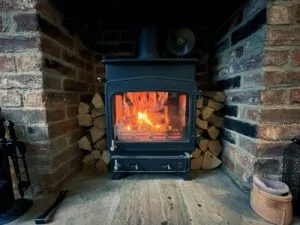
Blinds and Curtains
Natural sunlight is an important tool for heating homes. Keeping your blinds and curtains open during the day in the winter allows the ambient sunlight to heat the air in your home. This can make it easier for your furnace. However, if you close your curtains in the summer, then you’ll keep that sunlight and heat outside. This will give your AC an easier job.
5. Use Fans
Fans are a great asset to use around your home. They disperse the air that comes from your vents to make the temperature in your home even. A well-placed fan can break up a heat pocket that is trapped in a corner or help airflow along a hallway or stairwell.
6. Keep Your Ducts Insulated and Sealed
If your ducts are not insulated or sealed, then they could leak heat. Not only does this mean that your HVAC system is losing efficiency, but it also means that it cannot get airflow into your home. This can cause you wasting money on energy bills while your HVAC system sends airflow outside your home.
We have an article on how to go about insulating your duct work. If you suspect your duct work has a leak, has come unsealed, or has collapsed, then contact your local HVAC professionals and have them look at it.
7. Smart Use of Your Thermostat
The way you use your thermostat can also impact the efficiency of your HVAC system.
Rule of 20
In our market of Oregon and in similarly temperate climates, the common guidance is to keep your thermostat set within a 20-degree difference of the outside temperature. This is not true for all systems in all climates, so check with your local HVAC company for specific advice.
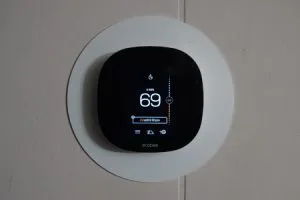
In our market, HVAC systems can achieve up to 20 degrees of cooling or heating without straining too hard. If you push your system beyond that, then you may notice that your HVAC equipment struggles to keep up. This means that it will run for long cycles. Your furnace may overheat, or your AC may ice over.
Set your thermostat within the 20-degree window to get optimal performance.
Programming
The settings of your thermostats program can also impact the efficiency of your HVAC system. If you do not yet have a programmable thermostat, then it may be worthwhile to upgrade to one that is compatible with your system.
Having a thermostat programmed to run close to the outside temperature can cause increased efficiency. If your thermostat is programmed to a warmer temperature at midday and a cooler temperature in the morning and evening, then your HVAC system will encounter less resistance. Keeping your goal temperature close to the ambient temperature can decrease the amount of energy your HVAC system needs to use.
There are, of course, exceptions to this. In heat waves, it’s better to set your thermostat to one temperature early and not let your home warm up during the day. Similarly with cold shocks, it’s best to not let your home cool during the night. When the outside weather is extreme, then pumping air into your home early and constantly will give your HVAC system less work to do. It’s easier to maintain a temperature than it is to change it.
8. Keep Your Equipment Clean
Your HVAC system has a ton of moving parts that all require airflow. Therefore, it’s important to keep all of those parts clean so that your equipment can get airflow.
Air Filter
Most obviously is changing your air filter. Change your air filter regularly at the recommended intervals and check it for dirt build up often.
Outside Equipment
Your HVAC system will have outdoor units if you have a heat pump or an AC unit. Make sure that leaves and debris do not fall into these systems as that can damage them. Clean out your gutters and cut back any trees that might pose a risk to your equipment.
9. Upgrade Existing Equipment
This is where we get into the options that cost money. It’s possible to have your local HVAC professionals retrofit some of your existing equipment. There are certain modifications they can make to improve its performance.
However, if you notice that some of your equipment is very out of date and inefficient, then you may just look to upgrade it piece-by-piece. It’s possible that you moved into a new home with a great furnace but an out of date and inefficient AC unit. That’s not unheard of in Oregon.
You may just need to talk with an HVAC sales professional to find a piece of equipment that is efficient and compatible with your existing system.
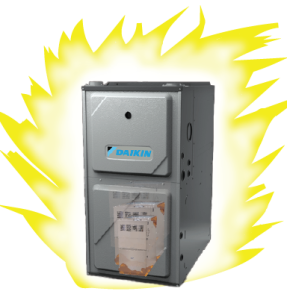
Energy Star Rated Equipment
A good place to start a discussion with your sales professional is Energy Star rated equipment. Many manufacturers produce high-quality equipment, and the Energy Star guide lets you know what their most energy efficient offerings are.
10. Invest in a New System
If you moved into a new home and the entire HVAC system is out of date, or if you just want to future-proof your permanent home, then it could be beneficial to invest in a new energy-efficient HVAC system.
Contact your local HVAC sales professional and ask them for a whole new energy-efficient HVAC system and design.
Heat Pumps
Depending on where you live, they might offer you a heat pump to fit all your needs. On average, a heat pump is more efficient that a furnace or AC unit and it can both heat and cool. Even when paired with a secondary unit for really hot or cold days, a heat pump system will use less energy over the course of a year.
Geothermal Heat Pumps
The most energy efficient option would be a geothermal heat pump. This kind of heat generates its own sustainable power. They can be a hefty investment, but there are few systems that are as energy efficient as a geothermal heat pump.
Solar Power
Another contender for the most energy efficient HVAC system is a solar powered heat pump.
Alternatively, if your home is set up to run entirely on solar power, an electric furnace and AC are also an option.
Both options require an investment in solar panel installation. If you have already installed solar panels on your property, then these options may be a good fit for you.
Who Are Advantage Heating and Air Conditioning, LLC?
We are your local HVAC Experts out of Salem, Oregon. We hope that this post gave you the information you need to know to figure out how to get the most efficiency out of your HVAC system. If you have other questions about HVAC systems, check out our other blogs. To learn more about who we are and how we can help you, visit our website and follow us on social media – we’re here when you need us!

